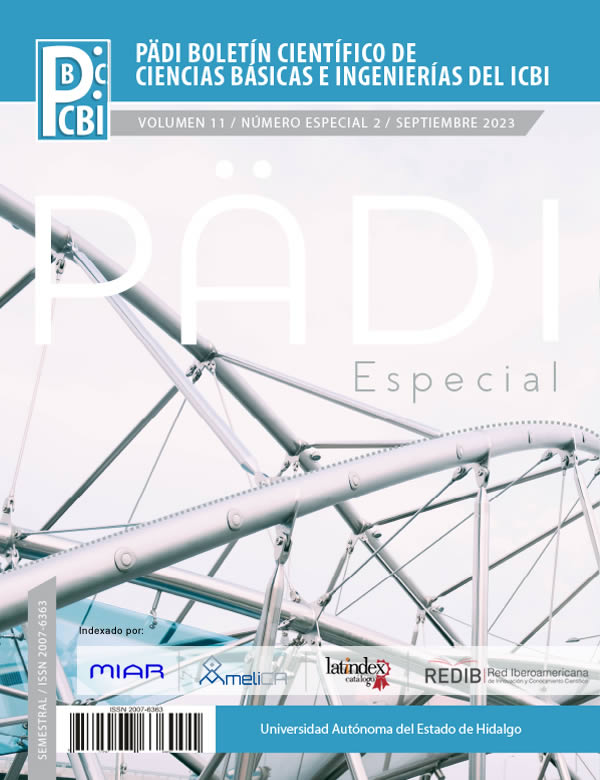Optimal Tuning of a Bounded e-Modified Adaptive Control Law using a Particle Swarm Optimization algorithm
Abstract
This paper presents the gain tuning of an adaptive control law by means of Particle Swarm Optimization (PSO). The restrictions imposed on the particles in the PSO are obtained from the stability analysis of the adaptive control law. In this way, the PSO produces particles associated with optimal gains that simultaneously guarantee closed-loop stability and the minimization of the Fitness Function. The adaptive controller employs the velocity and acceleration of the desired trajectory signal for constructing the regressor vector used in the updated law. In addition, a new bounding technique is proposed for the estimated parameters allowing them to remain within certain prescribed limits. The performance of the adaptive law tuned using the PSO is evaluated by experiments on a low-cost servo system.
Downloads
References
Åstrom, K. J., Hägglund, T., Hang, C. C., and Ho,W. K. (1993). Automatic tuning and adaptation for pid controllers-a survey. Control Engineering Practice, 1(4):699–714.
Åstrom, K. J. and Wittenmark, B. (2013). Adaptive control. Courier Corporation.
Chang, W.-D. (2022). An improved particle swarm optimization with multiple strategies for pid control system design. International Journal of Modeling and Optimization, 12(2).
Hu, J. y Chen, W. (2022). Design of active disturbance rejection controller for dynamic positioning based on improved particle swarm optimization. Mathematical Problems in Engineering, 2022.
Ibrahim, M. A., Mahmood, A. K., and Sultan, N. S. (2019). Optimal pid controller of a brushless dc motor using genetic algorithm. Int J Pow Elec & Dri Syst ISSN, 2088(8694):8694.
Joseph, S. B., Dada, E. G., Abidemi, A., Oyewola, D. O., and Khammas, B. M. (2022). Metaheuristic algorithms for pid controller parameters tuning: Review, approaches and open problems. Heliyon, pp. 309–399.
Juarez-Castillo, E., Acosta-Mesa, H., and Mezura-Montes, E. (2019). Adaptive boundary constraint-handling scheme for constrained optimization. Soft Computing, pp. 1–34.
Kennedy, J. y Eberhart, R. (1995). Particle swarm optimization. In Proceedings of ICNN’95 - International Conference on Neural Networks, volume 4, pp. 1942–1948.
Lewis, F. L., Dawson, D. M., and Abdallah, C. T. (2003). Robot manipulator control: theory and practice. CRC Press.
Liu, X., Gao, Q., Ji, Y., Song, Y., and Liu, J. (2022). Active disturbance rejection control of quadrotor uav based on whale optimization algorithm. In 2022 IEEE International Conference on Mechatronics and Automation (ICMA), pp. 351–356. IEEE.
Makeblock (2019). 180 optical encoder motor.
Mohideen, K. A., Saravanakumar, G., Valarmathi, K., Devaraj, D., and Radhakrishnan, T. (2013). Real-coded genetic algorithm for system identification and tuning of a modified model reference adaptive controller for a hybrid tank system. Applied Mathematical Modelling, 37(6):3829–3847.
Morales, O. J., Tristán-Rodríguez, D., and Garrido, R. (2022). Experimental evaluation of an adrc law using a teaching platform. En 2022 XXIV Robotics Mexican Congress (COMRob), pp. 78–83.
Narendra, K. S. (2013). Adaptive and learning systems: theory and applications. Springer Science & Business Media.
Narendra, K. S. and Annaswamy, A. M. (2012). Stable adaptive systems. courierCorporation.
Rodríguez-Molina, A., Mezura-Montes, E., Villarreal-Cervantes, M. G., and Aldape-Pérez, M. (2020). Multi-objective meta-heuristic optimization in intelligent control: A survey on the controller tuning problem. Applied Soft Computing, 93:106–342.
Rodríguez-Molina, A., Villarreal-Cervantes, M. G., Mezura-Montes, E., and Aldape-Pérez, M. (2019). Adaptive controller tuning method based on online multiobjective optimization: A case study of the four-bar mechanism. IEEE transactions on cybernetics, 51(3):1272–1285.
Roeva, O. and Slavov, T. (2012). Pid controller tuning based on metaheuristic algorithms for bioprocess control. Biotechnology & Biotechnological Equipment, 26(5):3267–3277.
Sadegh, N. and Horowitz, R. (1990). An exponentially stable adaptive control law for robot manipulators. IEEE Transactions on Robotics and Automation, 6(4):491–496.
Sastry, S. (1989). Adaptive Control; Stability, Convergence and Robustness. Prentice Hall Information and System Sciences Series.
Sastry, S. and Bodson, M. (2011). Adaptive Control: Stability, Convergence and Robustness. Courier Corporation.
Sidorov, G. (2018). Artificial Intelligence. Alfa-Omega.
Sun, P. A. I. J. (1995). Robust Adaptive Control. Prentice Hall.
Wang, D., Tan, D., and Liu, L. (2018). Particle swarm optimization algorithm: an overview. Soft computing, 22(2):387–408.
Copyright (c) 2023 Olga Lidia Jiménez-Morales, Diego Tristán-Rodriguez, Ruben Garrido, Efrén Mezura-Montes

This work is licensed under a Creative Commons Attribution-NonCommercial-NoDerivatives 4.0 International License.













